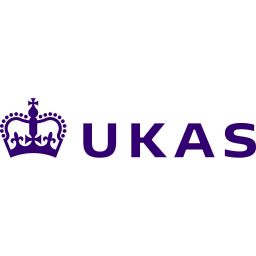
Nick Rushfirth, UKAS
As the accredited testing, inspection and certification (TIC) industry continues to grow and evolve in response to a changing world of standards, regulations and legislation, the need to recruit and retain the right talent is paramount.
The industry needs individuals with specialist skills and expertise who also have well-rounded knowledge and take an innovative approach.
Here we take a look at the main hiring issues facing the TIC industry:
The level playing field
What would motivate a candidate to join your company? When you deliver the same testing or certification service as your closest competitor, you need to understand the main drivers.
Salary will always be key. We don’t like to think that it is always the main motivator, but most people would not move roles for a lesser basic salary. As the cost-of-living continues to rise, compensation is more important than ever. With most TIC companies offering a strong wider package, it’s something that all job seekers will consider when looking for a new role.
Work-life balance is also high on candidates’ priorities. They want to know what the employer’s expectations of them will be from the outset so they can decide if the role is right for them and if they will be able to meet their commitments outside of work. The main reason people resign in the first six months is because they under-estimated or were misled about the conditions of the role at interview stage.
‘Mis-hires are more costly than an open vacancy in the long run.’
Potential employees want to know what career path awaits them within their new organisation. Most workers are not looking for a promotion every two years; but they are looking for a clear pathway to continue their professional development, either through progression or by gaining additional skills or qualifications.
The systems we use are critical when it comes to the retention of our existing employees. If our systems or reporting software is dated and cumbersome and takes up valuable time, employees may not feel that they are making the best use of their technical skills. Particularly if they have used better systems elsewhere.
Similarly, changes in policies, travel requirements or the wider package can have more of an impact than you may think on existing employees.
In 2016, an auditor for a global certification body approached me looking for a new role. After looking past his excuse of “I’m just looking for a new challenge” (no one ever leaves a job to look for a new challenge by the way), it transpired that his lunch allowance was reduced by the princely sum of £4 and this was enough motivation for him to explore the jobs market. An extreme example perhaps, but a reminder that when your competitor is offering the same role with a salary uplift, sometimes the smallest prompt is all that is needed.
Skills shortage
As the market becomes ever more dominated by large, multinational corporations on the Mergers and Acquisitions trail, we have found that talent within these organisations often have less well-rounded technical experience. Through no fault of their own, employees often have very specific responsibilities with limited experience of other departments and duties compared to someone working for a smaller business who develops wider technical and practical skills.
As comprehensively covered in an article by Lauren Wakeling in the Spring 2023 newsletter, the lack of new STEM (Science, Technology, Engineering and Maths) skills coming through from education is a real concern when it comes to filling future technical roles, from entry level right up to leadership positions. Employees being siloed and staying focused on very specific technical areas can only compound this.
Attracting the right(ish) people
When recruiting, we are often hunting for unicorns.
The candidates that meet every single requirement on the job specification, have twenty years of practical experience, live locally, will accept a market average offer and can start yesterday simply don’t exist. If they do, please get in touch as I would love to speak to them.
But if we can’t find this ideal candidate, what do we look for in a hire? Someone who has a solid foundation to build on, be this experience in industry, working for a competitor or even a real passion and desire to work in the TIC space.
We need to ensure that our recruitment process doesn’t just consist of a competency-based interview, with questions getting fired at the applicant. Instead it should be a forum for us to understand what they are looking for, how trainable they are and which other areas of our business they could develop in with the right mentoring and training support.
What can TIC companies do to improve recruitment and retention?
- Shut the back door – Do what you can to keep your employees. Key factors for retention include a good culture, salary reviews, continuous development opportunities and the chance to work with the best clients. The easiest recruitment is no recruitment.
- Work with a small number of trusted talent partners – Recruitment is a full-time job so, if you have the resources, consider employing an internal talent manager who can not only fill active roles, but also develop a pipeline of talent for future hires. If not, try to use a small number of specialist agencies to ensure that the message going out to the market via a recruiter is ‘on brand’ – the application process starts from the very first contact.
- Be open minded when recruiting and interviewing – Interviews are an inorganic situation and many people on both sides of the table are uncomfortable at the prospect. Be aware that some people may be the best technical mind in their field but can clam up under the pressure of an interview panel. Try to make every interview a two-way conversation, covering technical areas, but also trying to gain an understanding of the person sat in front of you and their ambitions.
- Invest in training and development – Employees who feel that they are gaining something outside of their core salary and benefits are much more likely to stay. If you sponsor or support an employee through industry qualifications, you are highly likely to retain that person.
In summary, recruitment of talent is tough and is made tougher when we sell the same services as our competitors. However, if you have a passion for developing the best people and providing them with well remunerated and rewarding roles, you will always have people who want to join you on your TIC journey.













